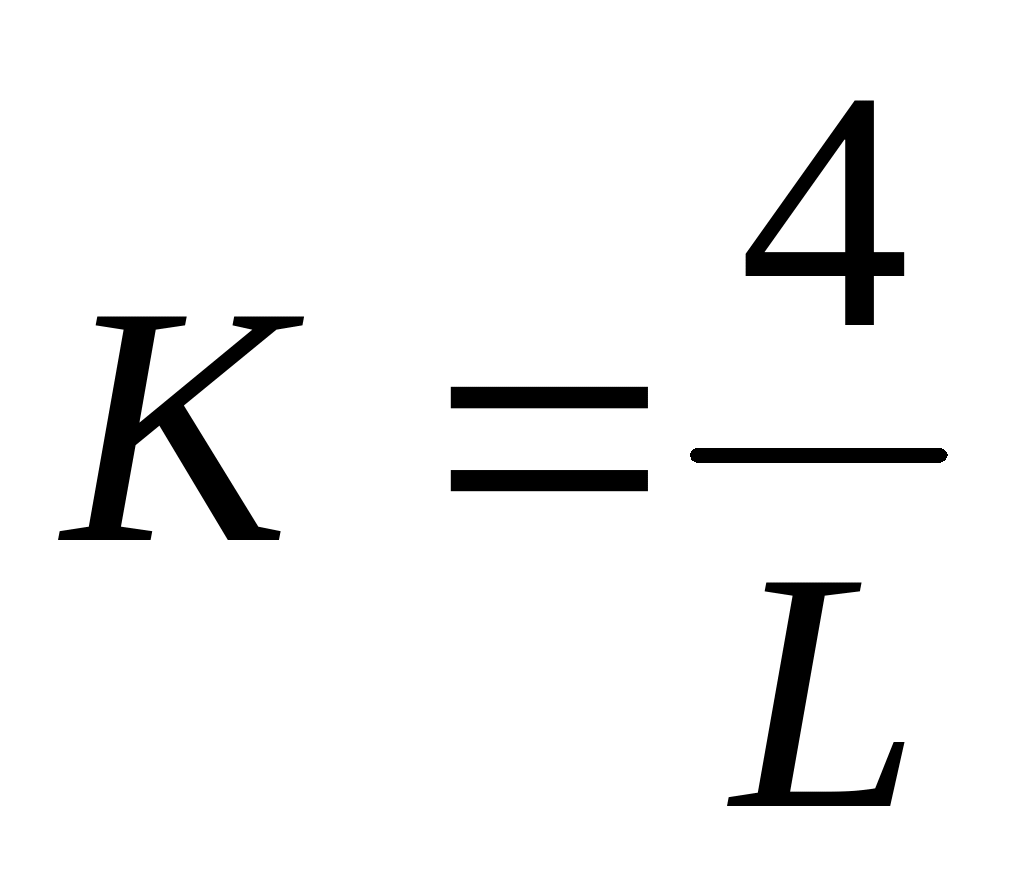(TRANSLATION) NANNING DECLARATION ON CHINAASEAN HEALTH COOPERATION AND DEVELOPMENT
(S OP) (FORMAT) (TRANSLATION) LETTER OF COMMITMENT IN CONNECTION(TRANSLATION) (2003) LI ZI NO 57 THE PROTOCOL DEPARTMENT
(TRANSLATION) 10 READERS SHOULD BE AWARE THAT ONLY THE
(TRANSLATION) 4 READERS SHOULD BE AWARE THAT ONLY THE
(TRANSLATION) ANNEX CONDITIONS OF BONDS THESE CONDITIONS OF BONDS
(TRANSLATION) DERIVATIVES ACT BE 2546 (2003) (AS AMENDED) BHUMIBOL
(Translation)
Nanning Declaration
On China-ASEAN Health Cooperation and Development
I. On the occasion of the 25th anniversary of China-ASEAN dialogue relations, senior health officials from China and member states of the Association of Southeast Asian Nations (ASEAN), namely Brunei Darussalam, Cambodia, Indonesia, Lao PDR, Malaysia, Myanmar, the Philippines, Singapore, Thailand and Viet Nam and representatives from the World Health Organization and the ASEAN Secretariat gathered in Nanning, Guangxi Zhuang Autonomous Region, China for the first China-ASEAN Health Cooperation Forum on 26 October 2016 with a view to implementing the Treaty of Amity and Cooperation in Southeast Asia and the MOU on Health Cooperation Between the People’s Republic of China and the Member States of the Association of Southeast Asian Nations, further advancing China-ASEAN health exchanges and collaboration under the mechanism of China-ASEAN Health Ministers Meeting and the ASEAN Secretariat-coordinated mechanisms, deepening China-ASEAN health innovation and cooperation and promoting common health development in the region.
II. Recalling that China and ASEAN member states have built the firm foundation for cooperation and seen much progress in their collaboration through discussions and communication in major cooperation areas in recent years, that we have been continuously strengthening and upgrading the China-ASEAN strategic partnership, good neighborliness, friendship, and mutually beneficial cooperation. As a result, China and ASEAN have forged a good relationship of shared destiny, common interests and close interdependence.
III. We recognize that health exchanges and cooperation are integral to China-ASEAN cooperation and have an important part to play in developing the relationship and deepening friendship between the two sides, enriching China-ASEAN cooperation and building an even closer China-ASEAN community of shared destiny.
IV. We recognize that health is the centerpiece, precondition and result of development as well as an effective indicator for sustainable development, that the value of health capital dwarfs any other form of capital, that by developing and maintaining the vitality of health systems in the region and promoting regional cooperation in health and health industry, we can not only enhance people’s health, but also add to the contribution made by economic and social development in our region.
V. We note that economic globalization, urbanization, and an aging population have posed increasing health threats to China and ASEAN countries, bringing greater disease burdens. The uncertainties of the global economy have huge impacts on our efforts to realize the goal of universal health coverage, thus the long and arduous task in strengthening health systems. Huge challenges are facing our health systems and even the sustainable economic, social and environmental development.
VI. We stress that the potential threats brought by infectious diseases should not be neglected. The Ebola outbreak in West Africa, MERS and the Zika virus have sounded repeated alarms, reminding the governments that the spread of emerging and reemerging infectious diseases has been a serious potential public health challenge facing all countries in the region. We recognize malaria, dengue fever, HIV AIDS and tuberculosis as the major public health issues in the region that will bring huge impacts on people’s health in the future and should be high on the agenda of all governments.
VII. We realize that with huge lifestyle transformation and longer life expectancy, non-communicable disease, have become major health burdens for countries in the region, causing heavy economic burdens and lowering life quality for the people.
VIII. We recognize that with a long history of application in China and ASEAN countries, traditional medicine serves as an important component of health care system for our countries and has played a significant role in disease prevention, treatment and rehabilitation.
IX. To strengthen China-ASEAN health cooperation, on the basis of good cooperation in the past, we reach the following common understanding with a more open attitude and in the spirit of mutual benefit:
1. Making joint efforts to implement the MOU on Health Cooperation between the People’s Republic of China and the Member States of the Association of Southeast Asian Nations and the Plan of Action under the MOU framework in order to contribute to the 2030 Sustainable Development Agenda of the United Nations and the Post-2015 Vision of ASEAN.
2. Promoting experience exchange between China and ASEAN countries on major public health issues, such as the information sharing, monitoring, joint prevention and control of and response to major infectious diseases, coordination and cooperation for public health emergency response and prevention and management of non-communicable diseases, and working jointly to meet challenges in a proactive manner.
3. Strengthening health human resources interactions. As agreed between the two sides, human resources cooperation will be intensified, together with personnel exchanges. Health and medical experts will be exchanged and various health vocational and technical training programs and workshops will be held as a way to enhance experience exchange and human resources training.
4. Supporting the WHO Traditional Medicine Strategy 2014-2023 and the Resolution on Traditional Medicine adopted at the 67th World Health Assembly. We believe it necessary to take effective steps to increase the understanding by national governments, society and the public of traditional medicine, further implement the Nanning Declaration adopted at the first China-ASEAN Summit Forum on Traditional Medicine in 2009, and, under the guidance of the five mechanisms, continuously advance friendly interactions among the institutions of the two sides and carry out extensive exchanges and cooperation in terms of education, healthcare, research, culture and medicinal resources in the context of traditional medicine.
5. Enhancing communication and coordination between China and ASEAN member states in international organizations, such as the WHO, and supporting the WHO in playing a critical role in global health governance and in its reform process.
X. We reach the consensus that China-ASEAN health cooperation under the mechanism of the China-ASEAN Health Ministers Meeting and the ASEAN Secretariat-coordinated mechanisms is of crucial significance. By forging of regional multilateral cooperation in the health field, a platform will be provided for government officials, experts, scholars and industry representatives to learn from each other’s expertise through exchanges and cooperation, the engagement in global health governance of China and ASEAN members states will be expanded and deepened as well. Therefore, we decide to make the China-ASEAN Health Cooperation Forum a biennial mechanism, under which we will seek more space for cooperation and development. The ASEAN side thanks the Chinese side for its meticulous preparation and thoughtful arrangements for this meeting and hopes that the China-ASEAN health cooperation will be even more fruitful and successful.
(TRANSLATION) FIGHTING COVID19 THROUGH SOLIDARITY AND COOPERATION BUILDING A
(TRANSLATION) NANNING DECLARATION ON CHINAASEAN HEALTH COOPERATION AND DEVELOPMENT
(TRANSLATION) POSITION PAPER OF THE PEOPLE’S REPUBLIC OF CHINA
Tags: (translation) nanning, cooperation, nanning, development, (translation), chinaasean, declaration, health
- CORRESPONDANCE ENTRE CAS ET FONCTION RÈGLE GÉNÉRALE
- [CLICK HERE AND TYPE TITLE] [[CLICK HERE AND TYPE
- THE OVERCOMING CHRISTIAN LIFE JOHN 1633 I HAVE
- KOPANONG LOCAL MUNICIPALITY BANKING AND INVESTMENT POLICY INDEX
- PERMANENCY CARE ASSISTANCE KEY ISSUES FOR JUDGES THE
- SMLOUVA O PRONÁJMU SPORTOVNÍHO VYBAVENÍ Č SMLOUVY ………………………………… ING
- WTDS4023 PAGE 0 WORLD TRADE ORGANIZATION WTDS4023 9 APRIL
- LAS PRÁCTICAS EN LA FORMACIÓN DE LOS EDUCADORES SOCIALES
- EL FESTIVAL SERIE Z 2012 LLEGA A SALA PAÚL
- DE VUYST H CLIFFORD GM NASCIMENTO MC MADELEINE MM
- RELAÇÃO DAS EMPRESASINSTITUIÇÕES CONVENIADAS COM O INSTITUTO DE ARTES
- DOMOV PRO SENIORY OKRUŽNÍ PŘÍSPĚVKOVÁ ORGANIZACE OKRUŽNÍ 83229 638
- CONVERT UNITS 1 CONVERT TO FEET 132 INCHES 2
- UN HOMBRE CONFORME AL CORAZON DE DIOS INTRODUCCIÓN CREO
- Amendment to Hotel Agreement Between and Tennessee Board
- PRONTISSIMO! FROM LAVAZZA AT THE BREAKFAST RUN 2017 STAGES
- PRED VAMA SE U OKVIRU NALAZI ULOMAK IZ ZBIRKE
- TIÊU CHUẨN UDP GIAO THỨC GIAO VẬN MẠNG
- 3 KOMUNALAC DOO 43000 BJELOVAR FERDE LIVADIĆA 14A OIB
- İPTAL EDİLEN MADDELER 15947 SAYILI KANUN’UN 1 MADDESIYLE DEĞIŞTIRILEN
- POWERPLUSWATERMARKOBJECT75596408 SKABELON TIL ANSØGNING TIL SMVDIGITAL REACT 2022H1 25000
- LOCUS PROSTORSKE INFORMACIJSKE REŠITVE DOO NAROČNIK OBČINA TOLMIN ULICA
- FAVERSHAM CREEK CONSORTIUM MANAGEMENT GROUP MINUTES OF MEETING HELD
- CALCULATING OUTCOMES POTENTIALLY SENSITIVE TO NURSING A LITERATURE REVIEW
- LOGOMARCA DA INSTITUIÇÃO CONCEDENTE CONVÊNIO DE ESTÁGIO CONVÊNIO QUE
- NA OSNOVU ČLANA 8 ZAKONA O JAVNIM NABAVKAMA („SLUŽBENI
- QUELLEN FÜR KOSTENLOSE BILDER WOHER BEKOMMT MAN KOSTENLOSE
- BIOLOGY AP NAME PRACTICE QUIZ PER 1 2
- TERMO DE COMPROMISSO – ESTÁGIO OBRIGATÓRIO IDENTIFICAÇÃO DO ESTAGIÁRIO
- 34 COMPETENTIES BUITENGEWOON BEROEPSSECUNDAIR ONDERWIJS STUDIEGEBIED GRAFISCHE COMMUNICATIE
 ANEXO XIV RESOLUCION DEL SR CONSEJERO INSULAR DEL AREA
ANEXO XIV RESOLUCION DEL SR CONSEJERO INSULAR DEL AREAGYMNÁZIUM JANA OPLETALA LITOVEL OPLETALOVA 189 OPLETALOVA 189 LITOVEL
TEDEN BOJA PROTI RAKU 38 MAREC 2008 PRESEJANJE REŠUJE
 DODATNI ZADATCI (ZA ONE KOJI ŽELE VIŠE) 1 KOLIKO
DODATNI ZADATCI (ZA ONE KOJI ŽELE VIŠE) 1 KOLIKO DAILY ROUTINES UNE LAS RETINAS AL LOS DIBUJOS DESPUÉS
DAILY ROUTINES UNE LAS RETINAS AL LOS DIBUJOS DESPUÉSSPRÁVNA FARMÁRSKA PRAX ČO JE SPRÁVNA FARMÁRSKA PRAX?
 COMMUNITY GROUP PROGRAM HOURS REQUEST & CLIENT PLAN NOTES
COMMUNITY GROUP PROGRAM HOURS REQUEST & CLIENT PLAN NOTESALLEGATO N 1 MODULO DI PARTECIPAZIONE AVVISO ESPLORATIVO
 27 OCTUBRE 2003 MICROECONOMÍA II · LISTA DE PROBLEMAS
27 OCTUBRE 2003 MICROECONOMÍA II · LISTA DE PROBLEMASMODENA GENTMO PRESIDENTE MARIO BARBUTO UNIONE ITALIANA DEI CIECHI
OBTENCIÓN DE LOS VALORES DE SENSACIÓN TÉRMICA EJERCICIO ST
DIGITAL VISUAL RESOURCES PLANNING REPORT OF THE DIGITAL VISUAL
U M O W A NR ………2012STAT O
COMMS COURSE OUTLINE WRITER GUIDE (REVISED) ELEMENT EXISTING COURSE
REPUTATION ACCOMPANYING PICTURE REPRESENTS THE FIRST (LARGER) NUMBER 1
DERS TANITIM BİLGİLERİ DERSIN ADI KODU YARIYIL TEORI (SAATHAFTA)
INFORME DE F LÓPEZ GRACIANI REPRESENTANTE DE LOS TIT
13 BULLETIN OFFICIEL DES DOUANES PRODUITS PETROLIERS DROITS ET
DECLARACIÓN YO DECLARO POR LA PRESENTE QUE UTILIZARÉ
UNIDAD 15 EL PROGRAMA NATURALISTA DE N CHOMSKY MENTE